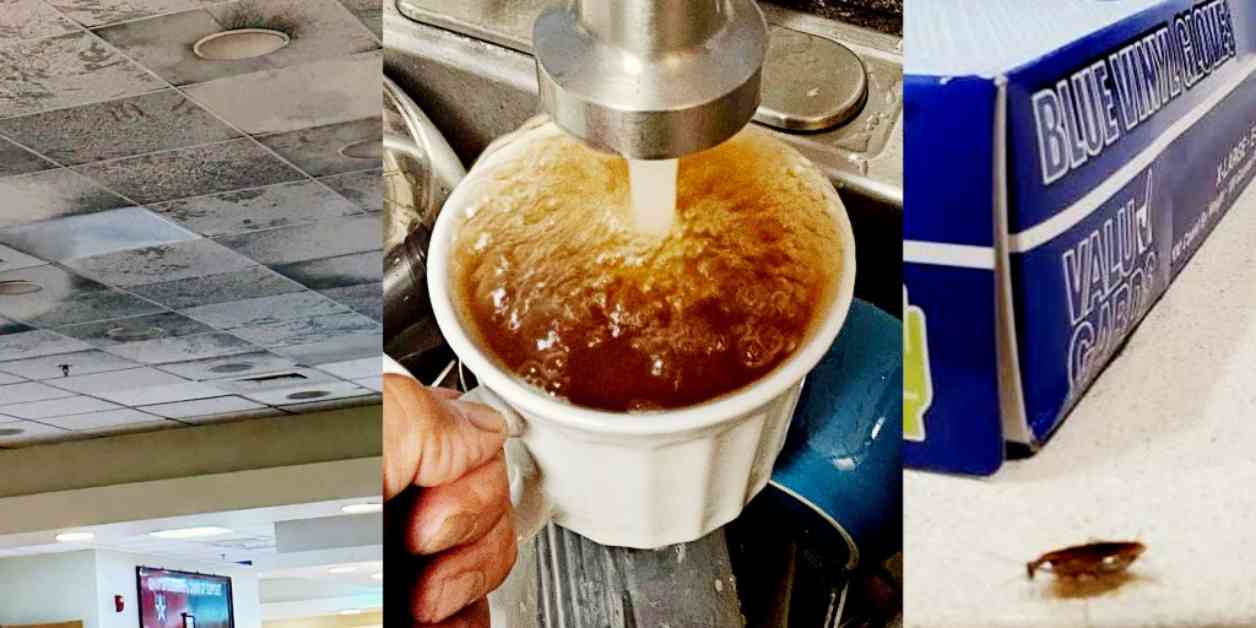Eight advocacy groups are demanding that the Pentagon address the poor living conditions that military personnel and their families are facing on U.S. military bases worldwide. These conditions include mold, bad air quality, contaminated water, lead paint, and infestations of roaches and other pests. The advocacy effort, spearheaded by an organization called Hots&Cots, aims to pressure the military to take immediate action to rectify these issues rather than waiting for planned renovations by the Pentagon, which could potentially take years to complete.
Rob Evans, the founder of Hots&Cots, emphasized the urgency of the situation, stating, “The Department of Defense must act sooner rather than later to address the quality-of-life issues facing our service members. Every day that these issues go unresolved is another day that the well-being and morale of those who serve are compromised.” The call for action comes after disturbing photos were submitted to Hots&Cots, depicting mold on the ceiling of a dining room at the U.S. Army Garrison Red Cloud in South Korea, a roach infestation at a Texas Air Force base, and brown water flowing from a faucet at Joint Base McGuire-Dix-Lakehurst in New Jersey.
Although NBC News has not independently verified the photos, Evans and his team of volunteers thoroughly evaluate and assess the images to ensure their authenticity. The Pentagon, in response to the mounting pressure, launched its Housing Feedback System on August 12th, allowing active-duty service members and their families to submit feedback about their housing conditions. A Pentagon spokesperson acknowledged the moral obligation to provide healthy, functional, and resilient living spaces for service members and their families, emphasizing the importance of the new feedback system in improving installation conditions.
In September 2023, the Government Accountability Office released a report highlighting the substandard living conditions in government-owned barracks and military housing operated by private companies. The report detailed instances of mold, mildew, broken windows, and overflowing sewage, prompting recommendations for increased oversight by the Department of Defense. The report also criticized the lack of clear inspection standards and guidance on addressing housing issues within the DOD.
Evans created the Hots&Cots app as a platform for service members to anonymously upload photos and reviews of housing and dining facilities, inspired by the GAO report findings. Since its inception, the app has garnered nearly 8,000 photos and approximately 400 reviews, shedding light on both positive and negative aspects of military living conditions. Evans, a former Army Reserve and Army National Guard member, emphasized the significance of addressing these issues, stating, “If we are asking someone to enlist and serve their country, this matters.”
Despite the disappointment in the military’s delayed response to known issues, Evans acknowledged the presence of leaders within the military who are committed to effecting change. By allowing users to report anonymously, Hots&Cots aims to remove barriers and fears associated with speaking out, particularly for enlisted troops. The organization does not collect personal or demographic information about its users, ensuring confidentiality and protection for those sharing their experiences.
Rep. Richard Hudson, R-N.C., voiced his support for the advocacy efforts led by Evans, emphasizing the need for efficient use of funds allocated for improving soldiers’ housing. Hudson, whose district includes Fort Liberty (formerly known as Fort Bragg), called for accountability in ensuring basic living conditions for service members. As the representative of one of the largest military bases in the world, Hudson pledged to continue holding Army Secretary Christine Wormuth accountable until troops receive the high-quality housing they deserve.
In conclusion, the push for improved living conditions on U.S. military bases underscores the importance of prioritizing the well-being and safety of service members and their families. By addressing issues such as mold, contaminated water, and pest infestations, the Pentagon can demonstrate its commitment to providing a conducive and healthy environment for those who serve our country. The collective efforts of advocacy groups, lawmakers, and concerned individuals are crucial in advocating for tangible changes that uphold the dignity and welfare of our military community.



























